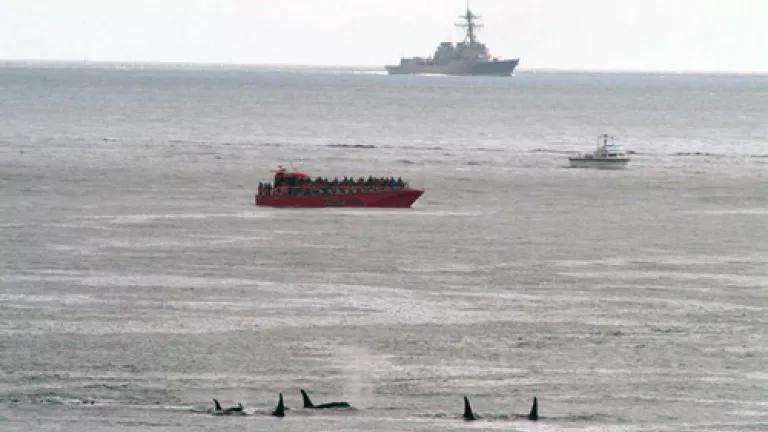
Last month the Canadian Navy ran an active sonar exercise in one of the worst places in the world for it: the straits and channels outside Puget Sound, Washington. Not only do these waters create a natural duct for sonar noise, heightening the danger for marine life, they’re considered critical habitat for the Northwest’s iconic killer whales – and protected under the U.S. Endangered Species Act.
Now a group of sixteen scientists – representing much of the Northwest killer whale research community – have come out with a simple message for both the Canadian and U.S. Navies: keep high-intensity sonar out of the whales’ critical habitat.
In their statement, the researchers point out the acute vulnerability of killer whales to sonar:
Killer whales are sensitive to the frequencies emitted by MFA sonar (2-10 kHz) and use the same frequency range to communicate with calls and whistles. Because MFA sonar is intense (source levels ~220-235 underwater decibels), it could permanently or temporarily deafen whales that are unexpectedly nearby and thereby impact their ability to forage, navigate, and socialize. Even temporary threshold shifts could be deleterious because the recovery of the Southern Residents hinges on their use of echolocation to find, identify, and acquire their primary prey, Pacific salmon.
We agree with the research community. There are certain places where dangerous sonar training just should not happen, and this vital, vulnerable, and legally protected habitat is among them.
